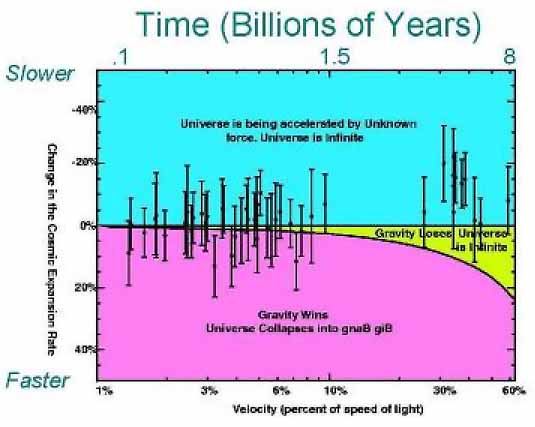High-Z Supernova Search
Table of ContentsThe Expanding Universe
The Fate of the Universe
Supernovae
Type Ia Supernovae
Searching for Distant Type Ia Supernovae
Search Results [1] [2] [3] [4]
Search Conclusions
Data and Discovery
So what could make the Universe accelerate? It turns out one possibility is a form of matter/energy invented by Einstein in the 1920s to ensure his equations of General Relativity did not predict the Expansion of the Universe. Although Einstein was willing to predict several things with his equations of General Relativity, he obviously thought an expanding Universe was too impossible to contemplate. He therefore introduced the Cosmological Constant, which repels matter and balanced the force of gravity, thus making a static Universe possible. Later, when faced with Hubble's evidence, the called this arbitary introduction the greatest mistake of his life.But starting in the 1980s, the Cosmological Constant has re-emerged as an explanatory factor that solves fundamental cosmological problems such as the discrepency between the age of the universe and the age of the oldest stars. A Universe with a lot of cosmological constant has a greater age. The age of the universe derived from the Hubble Constant is therefore brought into agreement with the age of the oldest stars.

The data points obtained by the High-Z SN Search team indicate that, instead of slowing down or just coasting, the expansion rate of the Universe is actually accelerating.

